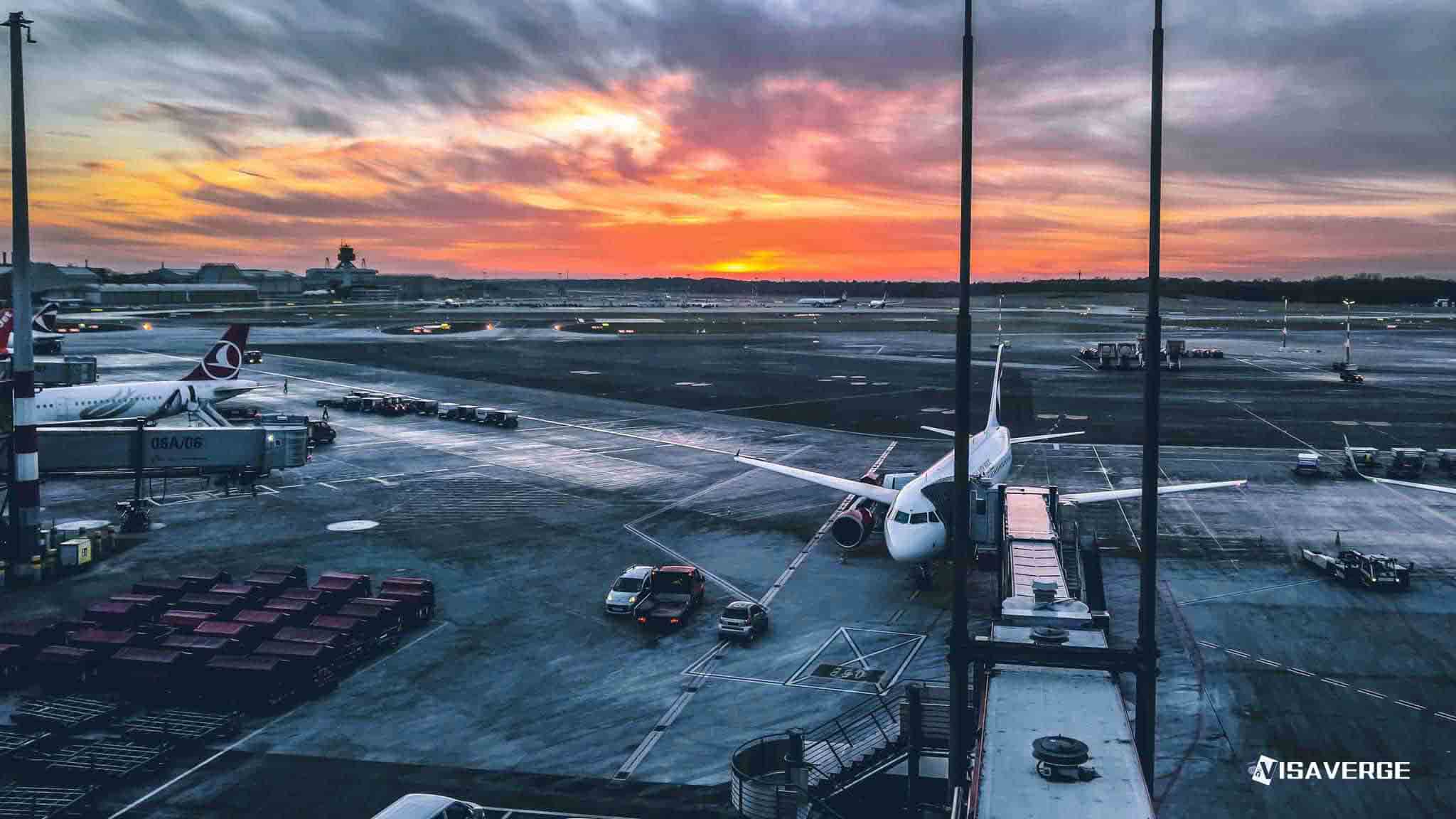(KANSAS) Kansas immigrants are bracing for sharp losses in health coverage after President Trump signed the One Big Beautiful Bill Act (OBBBA) on July 4, 2025. The law cuts roughly $1 trillion from Medicaid over 10 years and ends enhanced premium tax credits for the ACA marketplace, changes that analysts say will push up costs and reduce eligibility for many low-income families.
State health groups and community clinics warn the impact will be felt quickly across Kansas, a state that has not expanded Medicaid and already has rural hospitals on the brink.

New Restrictions on Lawfully Present Immigrants
Under the OBBBA, new federal restrictions will bar many lawfully present immigrants—including refugees, asylum seekers, survivors of domestic violence and trafficking, and people with Temporary Protected Status—from programs they could previously access.
These exclusions affect multiple programs:
– Medicaid, CHIP, Medicare, and ACA premium tax credits.
– Rollouts begin later this year and extend into 2026.
According to analysis by VisaVerge.com, these policy shifts—combined with Kansas’s longstanding refusal to expand Medicaid—are likely to produce a deep coverage gap for immigrant families that currently rely on public programs or the ACA marketplace.
Policy Changes and Timeline in Focus
The OBBBA’s changes hit at several points on the calendar, affecting different groups over the next 18 months:
- Immediate Medicare changes (effective July 4, 2025)
- The law took effect at signing.
- There is an 18-month “grandfathering” period for current enrollees who would otherwise lose eligibility due to the new immigrant restrictions.
- ACA premium tax credits (tax years beginning Dec. 31, 2025)
- Lawfully present immigrants in Kansas who fall below 100% of the federal poverty level and relied on enhanced ACA subsidies will lose access to those credits in 2025 filings.
- Example: For a 55-year-old in Kansas earning about $63,000, the loss of subsidies could mean roughly $5,340 more per year in premiums.
- Medicaid and CHIP eligibility (effective Oct. 1, 2026)
- Immigrant eligibility will narrow, removing access for groups previously considered lawfully present for benefit purposes.
- Families who used these programs for children’s check-ups, prenatal care, and chronic illness management will face difficult choices as benefits end.
The financial shock comes on top of Kansas’s status as a non-expansion state under the ACA—a policy backed by the GOP-led legislature and opposed by Governor Laura Kelly. Her office warns that federal cuts and state inaction together will limit affordable coverage options statewide, especially in rural areas where people already travel long distances for care.
Impact on Kansas Families and Providers
Community health workers report mixed-status families calling daily to ask whether they should cancel appointments or stop applying for coverage—even when a child or spouse still qualifies. Advocates add that stepped-up immigration enforcement policies echoing earlier Trump-era approaches are fueling fear. That fear can keep people from seeking care, which doctors say leads to late diagnoses and more emergency room visits.
Hospitals and clinics face severe financial strain:
– Before the OBBBA, 29 rural hospitals in Kansas were already at risk of closure.
– With fewer insured patients, providers expect uncompensated care to rise by hundreds of millions of dollars statewide.
– Hospital leaders warn that strain could force service cuts (closing maternity wards, reducing specialist coverage) or push some facilities to shut.
The federal government set aside a $50 billion fund for rural hospitals, but Kansas executives say it will not cover the wave of losses likely to hit states that did not expand Medicaid.
ACA marketplace changes also raise concerns:
– Removal of enhanced premium tax credits increases out-of-pocket costs for many Kansans who buy their own insurance.
– Some immigrants who once qualified for subsidized marketplace plans will now be priced out.
– A March 2025 CMS proposal would exclude DACA recipients from the “lawfully present” category used for marketplace eligibility. If finalized, this would undercut the Biden administration’s 2024 rule that expanded ACA eligibility to DACA recipients, reducing coverage options for young immigrants in Kansas and elsewhere.
Practical effects for families:
– Parents who used Medicaid for insulin or prenatal vitamins will need new coverage or must pay cash.
– Workers on bronze-level ACA plans may face plan termination at renewal.
– Community organizations expect more reliance on charity care and free clinics—facilities that warn they cannot absorb a surge if even a fraction of the estimated 15 million people nationwide lose coverage under the law.
Important: Clinics and hospitals expect longer lines, rising uncompensated care, and higher uninsured rates. Many Kansas immigrants will face a hard choice: go without care, or pay prices they cannot afford.
What Kansans Can Do Now
Families and individuals should take immediate steps to understand and prepare for changes:
- Confirm current eligibility and renewal dates.
- Review marketplace options for those who still qualify when open enrollment allows.
- Consult official guidance for immigrants shopping on the marketplace at HealthCare.gov: https://www.healthcare.gov/immigrants/coverage/
- This resource explains which immigration statuses can purchase coverage and how eligibility works as policy changes roll out.
Specific actions to consider:
– Immigrants nearing Medicare eligibility should ask about the 18-month grandfathering protection if already enrolled.
– Households with chronic conditions should discuss lower-cost medication options, patient assistance programs, or continuity-of-care arrangements with providers now.
– Do not skip urgent care out of fear—emergency rooms will still treat medical emergencies regardless of status.
– Seek help from legal aid groups and immigrant service organizations to review documents and prepare for eligibility changes.
– Take advantage of financial counseling offered by hospitals to plan for new bills and explore charity policies.
Policy Options and the Broader Debate
State policy choices still matter. If the Kansas legislature expands Medicaid in a future session, it could cushion some of the OBBBA’s effects by bringing in more federal dollars and widening coverage for low-income residents.
- Governor Kelly supports expansion but faces strong opposition in the legislature.
- Providers expect higher uninsured rates and more strain on safety-net care unless expansion occurs.
Nationally, the debate continues:
– Supporters of deep federal cuts argue the United States must rein in public spending.
– Opponents contend the OBBBA’s immigrant provisions go too far by removing coverage from people with legal status—including refugees and trafficking survivors who depend on stable care.
CMS’s final decision on DACA’s “lawfully present” status will also shape how many young people in Kansas can buy ACA marketplace plans next year.
Key Deadlines and Outlook
- Changes begin as early as the 2025 tax year.
- The largest Medicaid and CHIP shifts take effect October 1, 2026.
- Community health centers, hospitals, and immigrant families are planning now for a tougher market and fewer safety nets.
Summary of immediate risks:
– Clinics expect longer lines.
– Hospitals expect more red ink and possible service reductions.
– Many Kansas immigrants face the difficult choice between forgoing care or paying unaffordable prices.
This Article in a Nutshell
Kansas faces rapid coverage losses after OBBBA’s July 4, 2025 enactment. Medicaid cuts and lost ACA credits risk uninsured spikes, strain rural hospitals, and raise premiums. Immigrant families—refugees, TPS holders, asylum seekers—lose eligibility for Medicaid, CHIP, Medicare, and marketplace subsidies, prompting immediate planning and legal challenges statewide.








